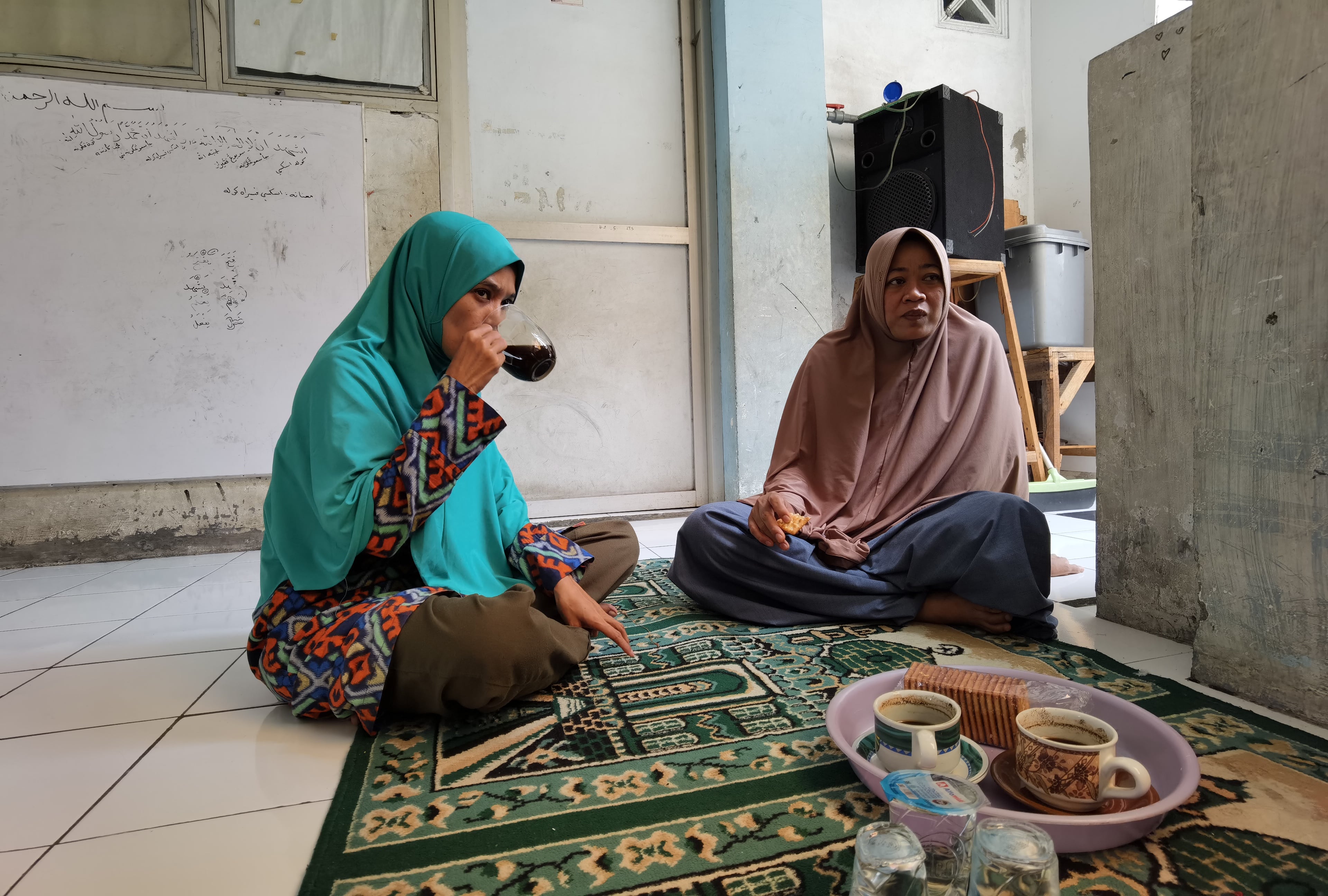I have experienced about eight attacks and have moved places many times,” said Syahidin at the end of November last year. Syahidin, a follower of the Ahmadiyya Congregation, one of the minority Muslim groups in Indonesia, was recalling the plight that has brought him to the Transito Dormitory complex.
He and his family are one of 35 Ahmadi families—about 127 people in total—living in the government-sponsored dormitory in Jalan Transito, Majeluk, Mataram City, West Nusa Tenggara (NTB). This complex was built originally to house families before they move to the transmigration locations during the New Order era.

“Kill the disbelievers!”, Syahidin recalled.
Click here to read the story of Syahidin and his family living as Ahmadis.
Coming from Sambik Elen, North Lombok, Syahidin and family were part of a small community of Ahmadis that were cast out of their village because of a mob attack that left one Ahmadi dead in 2001 for alleged heresy.
But that was not the last of it. They had to move to several places because persecution seemed to follow them wherever they went. Eventually, Syahidin and his family decided to stay in the refugee shelter, Transito Dormitory, where they had been living since 2006. Today, they are still waiting for the government to allow them to move out and live in their own homes, surely with security guarantees.
Another minority Muslim community, the Shias, have also experienced persecutions. Hatimah, Umi Kulsum, Rizkiatul Fitriyah or Fitri, and about 66 other former Shia families currently live in the Puspo Agro Apartment in Jemundo, Sidoarjo, East Java, after being driven out of their homes in Sampang, East Java, 10 years ago.
Like Syahidin, they are also victims of persecution because of their faith. Umi Kulsum and Fitri still remember the incident that took place in August 2012, when the mobs attacked their houses and other Shia families’ homes in Nangkernang, Sampang. “We hid in the field, some hid near the river,” said Umi Kulsum. About 48 houses were damaged by the attack, and one Shia resident was killed. After staying at the sports building in Sampang for almost a year, they eventually moved to Puspo Agro until now.

"When we get together, we sleep like canned fish," said Fitri.
According to Syera Anggreini Buntara, a researcher of religious freedom at the SETARA Institute, Ahmadiyya, particularly the Indonesian Ahmadiyya Congregation community, is the religious group most victimized by acts of intolerance and discrimination in Indonesia, followed by Christians.
From 2007 to 2021, SETARA recorded 586 cases of violations of freedom of religion and belief against the Ahmadis. Persecutions on Shias, on the other hand, mostly happen around the Asyura celebration, the day of mourning for the martyrdom of Husayn ibn Ali, the son of Ali ibn Abi Thalib, who the Shias believe to be the rightful successor of the Prophet Muhammad as a leader.





